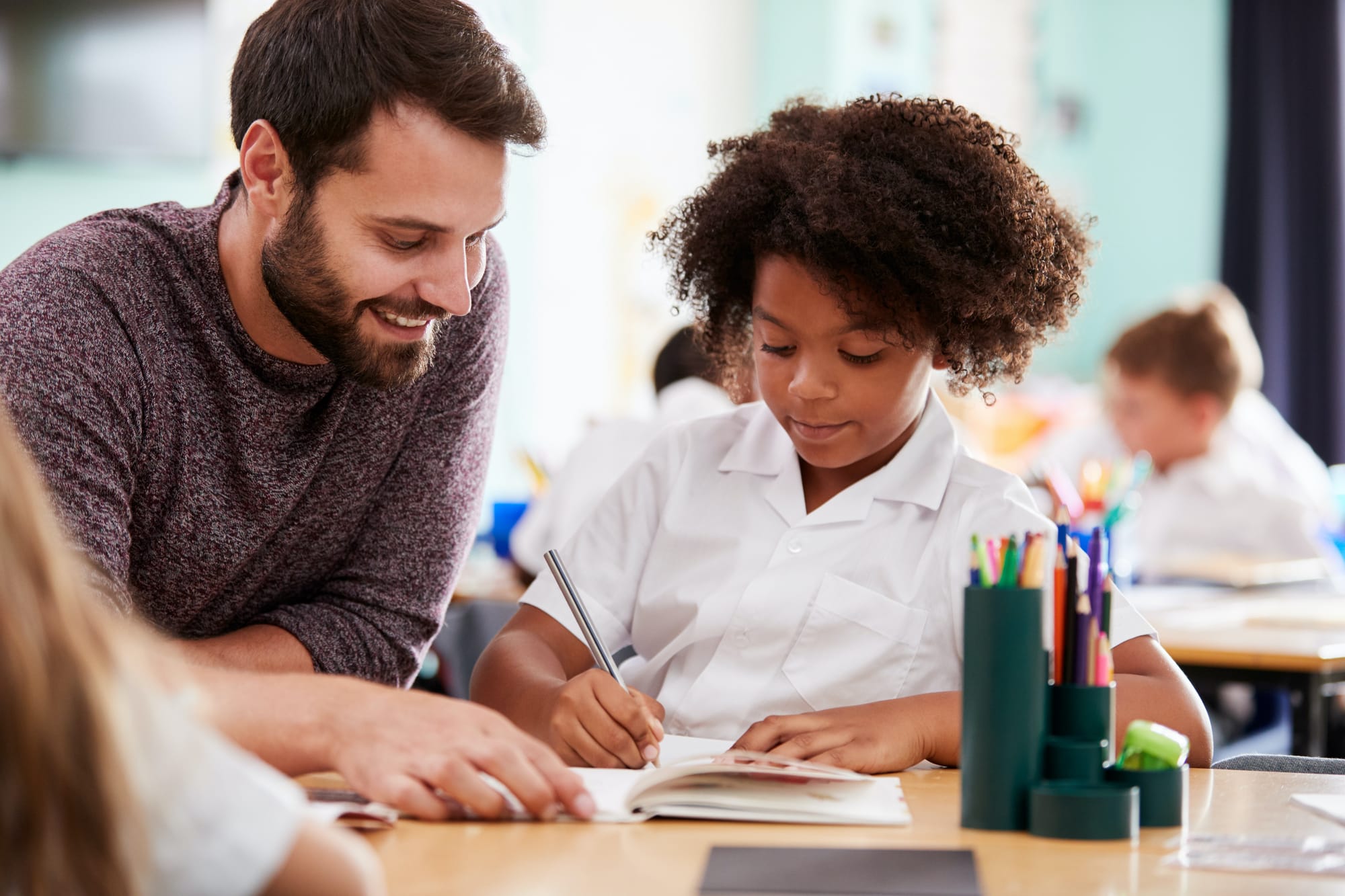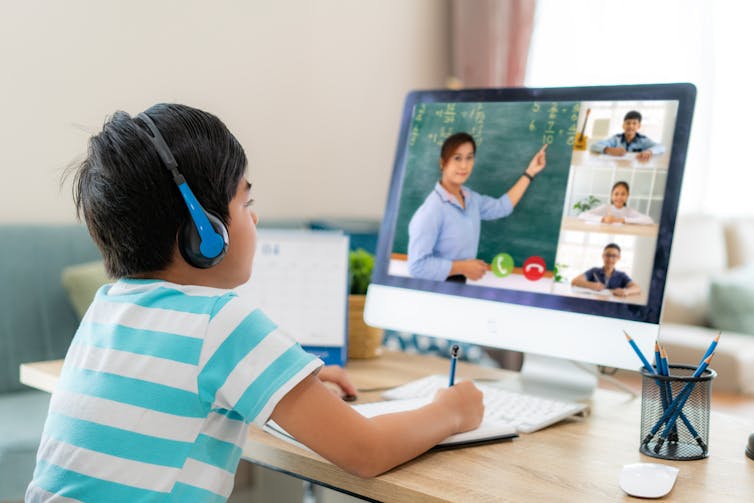
By June 2020, the COVID-19 crisis had forced schools to close in 188 countries, disrupting the learning of more than 1.7 billion children. The OECD estimated the impact of these school closures would be at least two months of lost teaching for half of primary and secondary school students.
In Australia, modelling by the Grattan Institute estimated disadvantaged students – including those from low socioeconomic families, Indigenous backgrounds and remote communities – had lost about two months‘ learning during the remote learning period in Victoria.
Some states have invested in tutoring schemes to help students catch up. This includes the Victorian government’s A$250 million Tutor Learning Initiative, South Australia’s Learning+ program, and New South Wales’ plan to employ up to 5500 staff to support students who may have fallen behind.
Evidence suggests some groups of students, such as those in the most disadvantaged schools, have felt the effects of lockdowns more than others. Evidence also suggests small-group tuition can make a difference. But this is only the case if the tutoring itself is evidence-based.
Between March and September 2020, we surveyed 492 teachers and school leaders from 414 schools across New South Wales, South Australia, Victoria and Queensland about their use of evidence – particularly research-based evidence. Our sample included primary, secondary, combined (K-12) and special schools. They included a spread of government, Catholic and independent schools.
While the study was not specifically prompted by the pandemic, our emphasis on the use of research evidence became particularly relevant as schools – like the rest of the world – grappled with the virus.
While most educators said they regularly consulted evidence, only 43% did so for university-based research. Participants cited a lack of time and a lack of access to the evidence they needed.
Less than half regularly consult university research
School leaders and teachers involved in tutoring initiatives – and teaching more broadly – have to make nuanced decisions about how best to address learning.
They must draw on various sources of evidence to understand how different factors have influenced their students’ learning, and then decide on the most effective way forward.
A key question, therefore, is how confident and able are our leaders and teachers to use evidence to inform their responses to the effects of COVID-19?
Our survey aimed to find out:
- what types of research and evidence teachers and school leaders value
- how and why they source different kinds of evidence
- whether and how they use research in their practice
- what they believe “using research well” in practice means.
More than two-thirds of survey participants (70%) said they had recently used evidence in their practice. Most consulted with familiar and readily-available evidence types such as “student data” (77%) and “policy and curriculum documents” (72%).

But respondents used research-based sources much less frequently. Only 43% said they regularly consulted “research disseminated from universities”, and 36% engaged with “university-based advice or guidance”.
Nearly half (43%) of respondents indicated “teacher observations and experience should be prioritised over research”. These educators were less likely to source research-related evidence types.
Read more: First, do no harm: Education research should answer to the same standards as medicine
We also asked educators to reflect on the evidence types they’ve used in relation to “a specific initiative related to improving student outcomes that [they or their] colleagues have started to use in [their] schools or classrooms in the past 12 months”.
Some answers related to COVID-specific initiatives such as the transition to online learning and the best learning platforms to use. Others spoke about interventions to address poor student behaviour, or phonic programs to improve literacy.
Schools need to help
Educators reported three particular challenges in relation to using research: access, organisational culture, and confidence.
First, many said they didn’t have sufficient access to research (68%), or adequate time to access and review it (76%). More than three-quarters (76%) also indicated they can’t keep up with new and emerging research, such as studies of the educational impacts of the pandemic.
Second, organisational cultures are important supports for enabling the use of research. Respondents reported they use research-related sources more often when their schools had processes designed to support their research use.
Finally, many respondents reported lacking confidence in their own skills and capacities to use research.
Read more: ‘Exhausted beyond measure’: What teachers are saying about COVID-19 and the disruption to education
Addressing the first two challenges is an important first step to building educators’ skills and capacities to use research.
Laureate education professor Jenny Gore recently wrote:
The success of the tutoring programs being used by schools to help students recover post-COVID-19 will depend heavily on the quality of the tutoring they provide.
Our findings suggest evidence use can play a key role in improving the quality of teaching, both in COVID-19 tutoring programs and classrooms generally. But this can only happen when educators feel they have the appropriate access, support and confidence to make evidence-informed judgments and practices.

Monash Q Project research is funded by project partner, the Paul Ramsay Foundation.
This article originally appeared on The Conversation.





